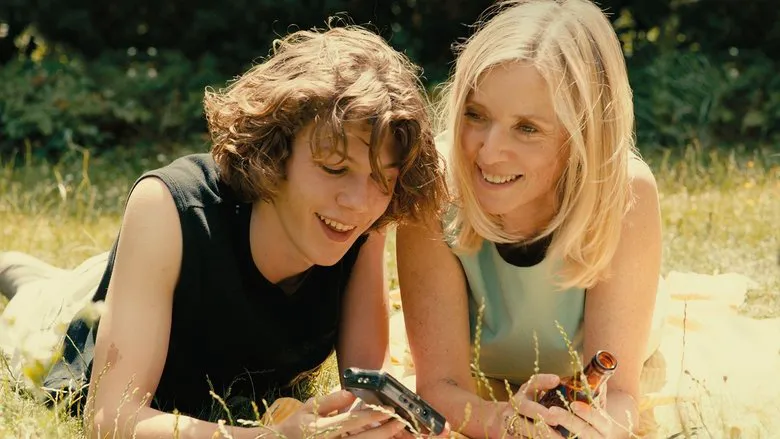An Unconventional Summer Romance: Exploring Desire and Deception
This film offers a sensitive exploration of intricate family dynamics, portraying how unspoken desires and restrained tensions can jeopardize the appearance of a normal life. The story revolves around Anne, a wife coping with the intricacies of a long-term marriage, and Théo, her headstrong stepson on the cusp of maturity.
The Allure of Forbidden Love
Théo, portrayed as a troubled young man, develops a complex attraction to Anne that blurs the boundaries of familial affection. Their relationship ignites after a minor act of rebellion, sparking a forbidden romance that challenges conventional norms. Despite the age difference, Anne and Théo find a shared maturity, a connection that surpasses generational gaps. He embodies a longing for authentic connection, while she struggles with anxieties about aging and her desire to break free from the banality of her life. Théo’s adolescent energy and defiant nature serve as a catalyst, disrupting Anne’s carefully structured existence.
Anne’s youthful aspirations have faded, while Théo stands at the threshold of adulthood. He exists untethered, effortlessly navigating the innocent domain of children and the passionate world of adults. His youthful rebellion is a privilege, allowing him to experience the best of both worlds. Anne becomes enthralled by Théo’s exuberant spirit, shedding her inhibitions and rediscovering a part of herself she thought lost.
A Summer of Secrets and Moral Dilemmas
The film’s narrative unfolds with captivating simplicity, focusing on the clandestine affair during a summer. Summer, as a symbol of youth and vitality, appears belatedly in Anne’s life. This delayed arrival of such beauty evokes both joy and sorrow, as she navigates her actions’ complexities. The excitement of the affair is continuously challenged by the ethical implications.
From a liberal point of view, marriage might be perceived as confining, inhibiting personal growth. The humdrum of middle-class existence becomes a cage, and the affair is a longing for liberation and vitality. Fluid camera movements and intimate close-ups help the director capture the subtle nuances of the characters’ emotions bringing the audience into their world. We become accomplices in their forbidden love, sensing the thrilling and the moral ambiguity.
The Aftermath: Truth, Lies, and the Price of Conformity
The film’s latter half explores the fallout from their affair. In an attempt to salvage their marriage and protect their reputation, Anne and her husband dismiss the affair as a figment of Théo’s imagination following his confession. By doing so, they reject love and invalidate Théo’s true emotions. They expose the phoniness and self-deception that they try to mask. People were unwilling to see the truth and make Théo question himself.
But is the husband truly ignorant of Anne’s infidelity? Perhaps not entirely. He may simply be prioritizing the preservation of his family and way of life above all else, but is he really naive? By subtly addressing this forbidden aspect, the film exposes the dishonesty that often lies beneath the surface of the relationship, even when faced with the truth. Theo on the other hand struggles. He is left overwhelmed by the lies and reality, and how he must cope with all of the change happening around him… The movie ends not resolving any of the real plot points. Should we stick with love or lean into the deceptiveness of life. The film was nominated for a reward at the film festival.